Wood retaining walls combine functionality with natural beauty, offering an attractive solution for managing slopes and preventing soil erosion. These versatile structures transform challenging landscapes into usable garden spaces while adding warmth and character to outdoor areas. From simple horizontal timber designs to elaborate curved installations, wood retaining walls complement various architectural styles and garden themes. Whether you're working with pressure-treated lumber, cedar, railway sleepers, or reclaimed materials, each approach offers unique benefits for different budgets and aesthetic preferences. The following collection showcases diverse wood retaining wall concepts that blend practical engineering with stunning visual appeal.
1. Horizontal Timber Wood Retaining Wall with Steel Posts

A horizontal timber wood retaining wall features pressure-treated planks secured between vertical steel posts driven deep into the ground. This robust design combines the natural warmth of wood with industrial-strength steel supports for maximum durability. The horizontal planks create clean, contemporary lines while allowing for easy replacement if needed. Steel posts provide exceptional longevity and structural integrity, making this ideal for higher walls up to four feet. The contrast between warm wood tones and sleek metal creates visual interest. Proper drainage behind the wall ensures long-term performance. This design works perfectly for modern homes and commercial properties requiring both functionality and sophisticated aesthetics.
2. Railway Sleeper Wood Retaining Wall with Vertical Installation

A railway sleeper wood retaining wall installed vertically creates a striking barrier perfect for curved or stepped applications. Each sleeper stands independently, buried one-third underground and secured with concrete for stability. This method allows varying heights across the wall length, creating organic, flowing lines that follow natural contours. The substantial mass of vertical sleepers provides excellent soil retention through gravity and earth pressure. Weathered railway sleepers develop beautiful patina over time, adding rustic character. The vertical installation suits sloping terrain and creates interesting shadow patterns. Drainage gaps between sleepers prevent water buildup. This timeless design complements cottage gardens, woodland settings, and traditional landscapes perfectly.
3. Cedar Wood Retaining Wall with Natural Weathering Finish

A cedar wood retaining wall showcases natural beauty while providing excellent rot resistance without chemical treatment. Cedar's aromatic oils naturally repel insects and prevent decay, making it ideal for organic gardens and food production areas. The warm, rich grain patterns create visual texture, while the natural aging process develops attractive silver-gray patina. Horizontal cedar planks between pressure-treated posts offer clean lines and contemporary appeal. This eco-friendly option costs more initially but provides exceptional longevity. The pleasant cedar scent adds sensory appeal to garden spaces. Regular maintenance involves simple cleaning rather than chemical treatments. Cedar walls complement both modern and traditional architectural styles while supporting sustainable building practices.
4. Curved Wood Retaining Wall with Flowing Garden Integration
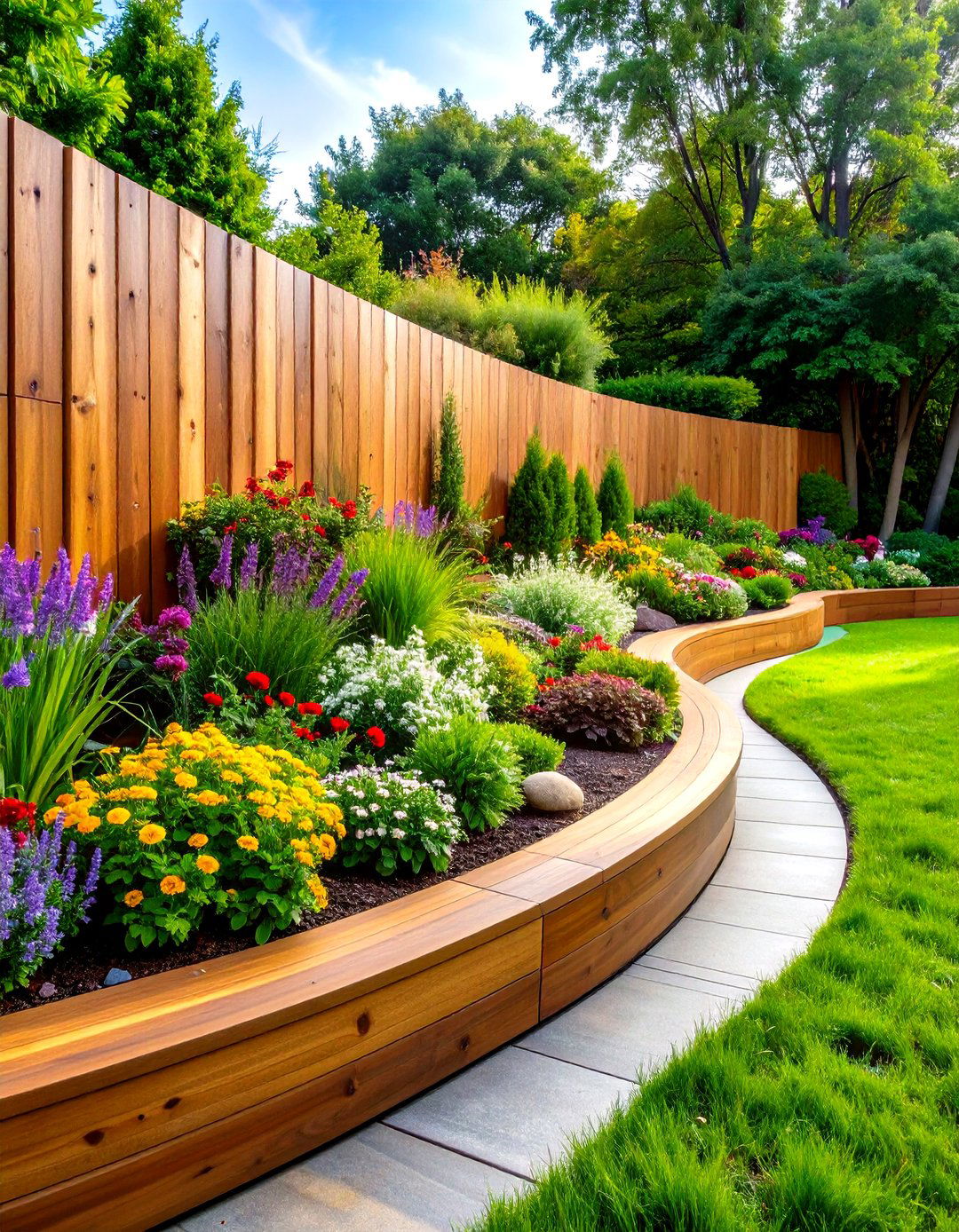
A curved wood retaining wall creates organic, flowing lines that soften harsh angles and integrate seamlessly with natural landscapes. Flexible lumber or segmented construction follows property contours, creating intimate garden spaces and visual focal points. The curved design distributes soil pressure more effectively than straight walls while adding architectural interest. Integrated planting pockets within the curve provide opportunities for cascading plants and colorful displays. This design works exceptionally well around water features, pathways, and seating areas. Construction requires careful planning and skilled installation to achieve smooth curves. The result transforms ordinary slopes into sculptural landscape elements that change appearance throughout seasons. Perfect for contemporary gardens emphasizing natural flow.
5. Terraced Wood Retaining Wall System with Multiple Levels

A terraced wood retaining wall system creates multiple level changes using several shorter walls instead of one tall structure. Each tier typically measures 18-24 inches high, connected by gentle slopes or steps between levels. This approach reduces soil pressure on individual walls while creating diverse planting opportunities at each level. Terracing prevents erosion more effectively than single walls on steep slopes. Different plant varieties at each level create layered visual interest and habitat diversity. The stepped design allows easier maintenance access and creates intimate garden rooms. Construction costs spread across multiple smaller walls rather than expensive tall structures. This classic technique suits hillside properties and large slope management projects perfectly.
6. Pallet Wood Retaining Wall with Recycled Material Construction
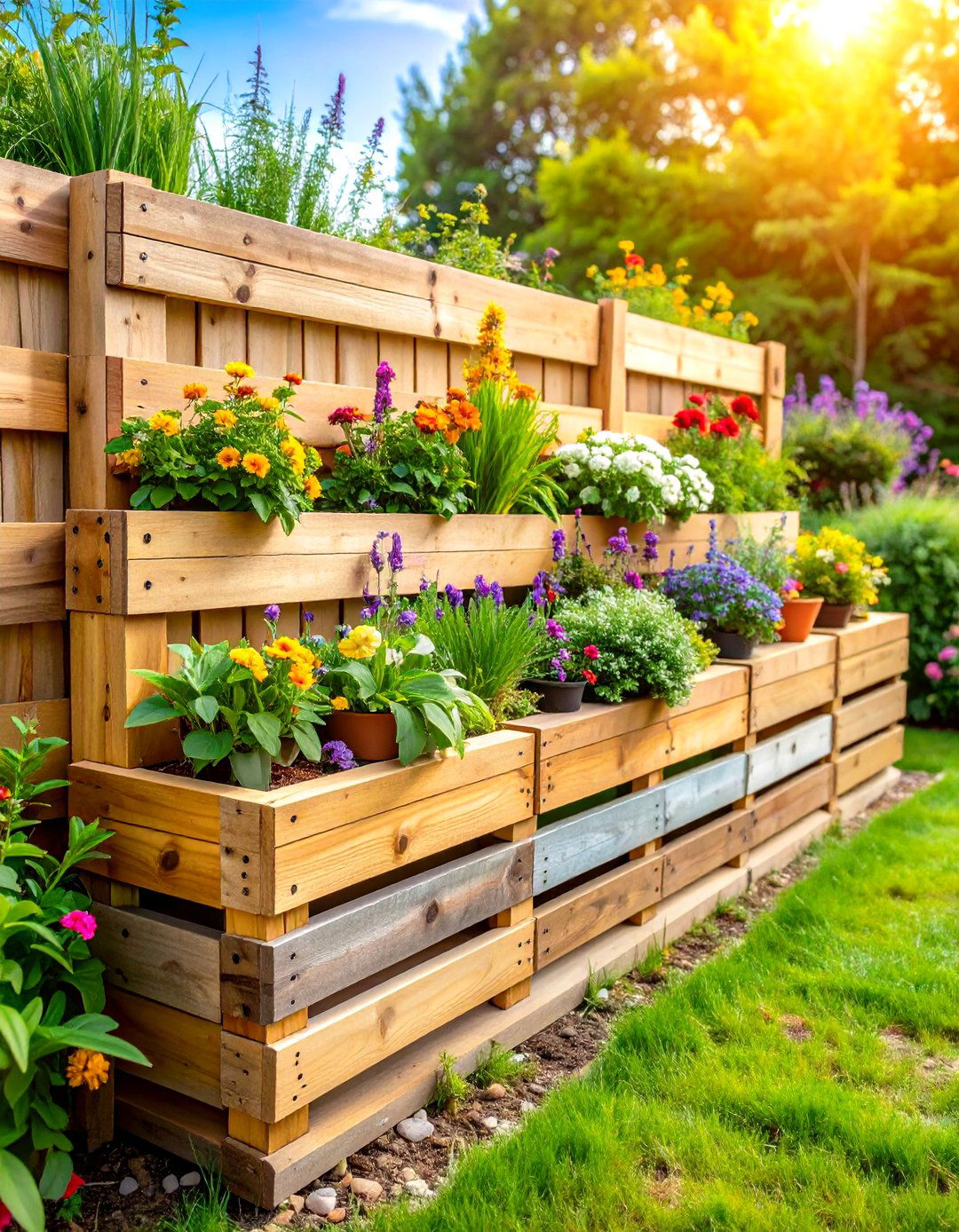
A pallet wood retaining wall transforms discarded shipping pallets into functional landscape features through creative reuse. Dismantled pallet boards provide varied widths and weathered textures for rustic charm. Individual planks attach to pressure-treated posts, creating custom patterns and visual interest. This budget-friendly option appeals to DIY enthusiasts and sustainable building advocates. Proper preparation includes removing nails, sanding rough surfaces, and treating wood for ground contact. The varied board widths create interesting shadow lines and texture variations. While requiring more maintenance than premium lumber, pallet walls offer character and environmental benefits. This approach works well for casual gardens, cottage landscapes, and eco-conscious properties seeking unique, affordable solutions.
7. Wood Retaining Wall with Integrated Bench Seating

A wood retaining wall with integrated bench seating combines soil retention with comfortable outdoor seating in one efficient structure. The wall extends above grade level, creating a wide cap suitable for sitting while maintaining proper height for soil retention below. This dual-purpose design maximizes space utilization in smaller yards and creates inviting gathering spots. Bench tops use smooth, comfortable lumber with rounded edges for user comfort. Hidden drainage ensures structural integrity while comfortable seating encourages garden enjoyment. The integrated approach costs less than separate wall and seating construction. This design works perfectly near patios, walkways, and garden viewing areas. Strategic placement creates intimate conversation spots while managing landscape changes effectively.
8. Stepped Wood Retaining Wall with Built-in Planters

A stepped wood retaining wall incorporates built-in planters at multiple levels, creating vertical gardening opportunities while managing slope changes. Each step features integrated planting boxes filled with quality soil for flowers, herbs, or vegetables. This design maximizes growing space in limited areas while providing structural soil retention. The stepped configuration reduces wall height requirements and creates visual interest through varied planting displays. Different plants at each level create seasonal color changes and habitat diversity. Built-in irrigation systems can integrate seamlessly into the design. This approach suits urban gardens, small yards, and areas where growing space is premium. The combination of structure and planting creates living walls that evolve beautifully over time.
9. Rustic Log Wood Retaining Wall with Natural Character
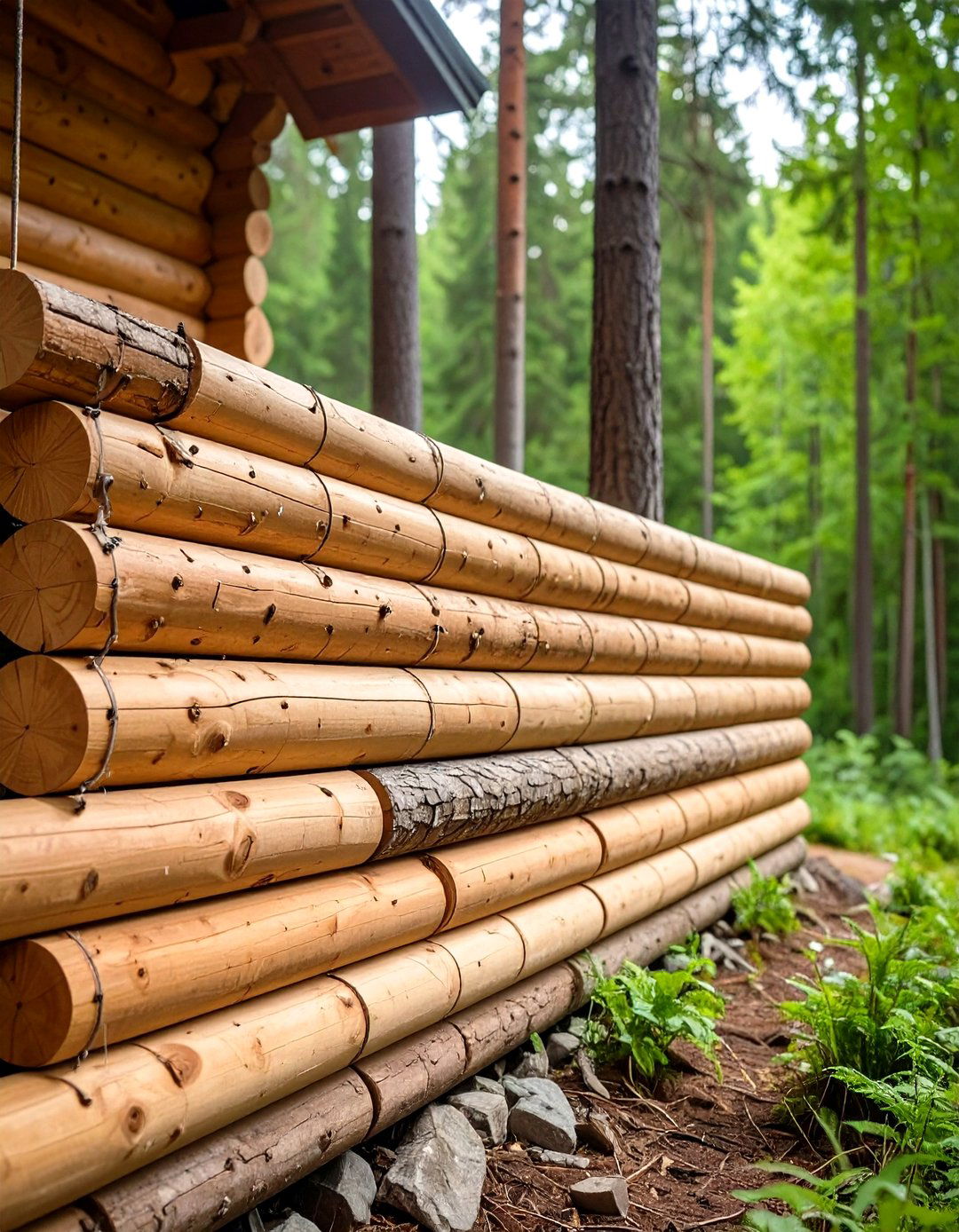
A rustic log wood retaining wall uses whole logs or half-logs to create substantial barriers with natural, woodland character. Large-diameter logs stacked horizontally provide massive soil retention through weight and interlocking construction. Steel rebar pins secure layers together while maintaining rustic appearance. This design suits mountain properties, cabin settings, and naturalistic landscapes perfectly. The substantial log mass provides excellent structural performance without requiring extensive engineering. Natural log variations create unique character impossible to replicate with milled lumber. Weather seasoning develops beautiful patina and texture over time. While requiring larger trees and specialized handling equipment, log walls provide exceptional longevity and authentic mountain aesthetic that complements rustic architecture and natural settings perfectly.
10. Modern Wood Retaining Wall with Steel Cable Accent

A modern wood retaining wall features sleek horizontal boards accented with steel cable railings for contemporary architectural appeal. Clean lines and precise construction create sophisticated landscape features suitable for modern homes and commercial properties. Stainless steel cables provide safety barriers while maintaining visual lightness and transparency. The combination of warm wood and cool metal creates striking material contrast. Precise board spacing and hidden fasteners emphasize clean, minimalist aesthetics. This design works well around modern patios, entry areas, and architectural landscapes. Professional installation ensures proper cable tension and structural performance. The result combines functional soil retention with architectural sculpture, creating dramatic focal points that complement contemporary building styles and sophisticated landscape designs.
11. Wood Retaining Wall with Decorative Cap Board Finish

A wood retaining wall with decorative cap board finish features an attractive top course that protects the structure while adding visual polish. The cap board overhangs slightly, creating shadow lines and protecting vertical boards from weather exposure. Various cap designs include beveled edges, routed profiles, or contrasting wood species for design interest. This finishing touch transforms basic retaining walls into refined landscape features. Proper cap installation includes drainage considerations and secure attachment methods. The protective overhang extends wall life by directing water away from vulnerable joints. Cap boards provide opportunity for integrated lighting, seating, or planter attachments. This attention to detail elevates simple retaining walls into professional-quality landscape features that enhance property values.
12. Gabion-Wood Hybrid Retaining Wall with Natural Stone Fill
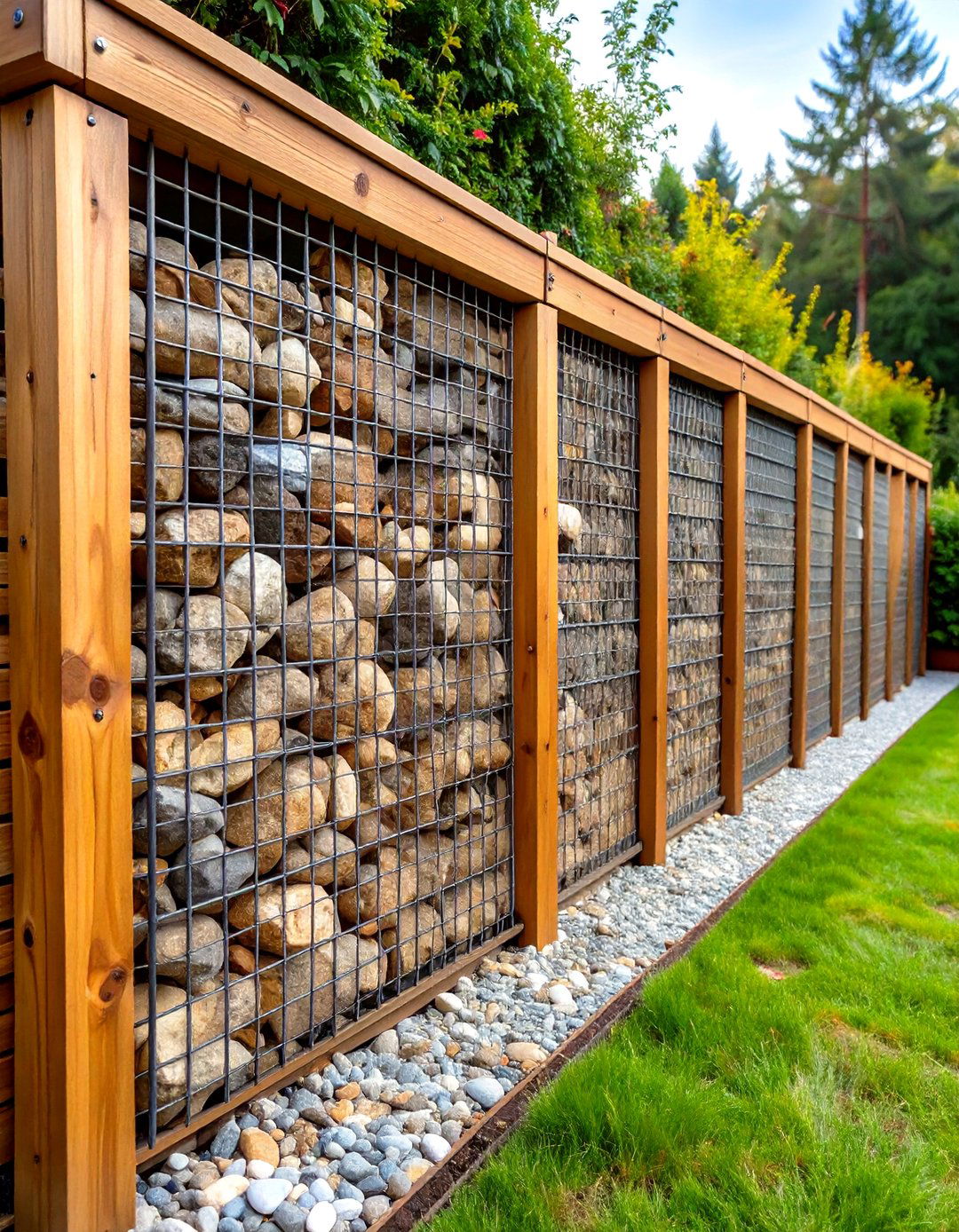
A gabion-wood hybrid retaining wall combines wire mesh baskets filled with natural stone and wooden frame elements for unique texture and performance. The stone-filled baskets provide mass and drainage while wooden frames create structure and visual warmth. This combination offers excellent durability and interesting material contrast. The permeable stone fill allows natural drainage while wooden elements provide construction flexibility. Various stone types create different color and texture combinations. The hybrid design suits contemporary landscapes seeking natural materials with modern construction techniques. Installation requires coordination between masonry and carpentry trades. The result combines the durability of stone with the workability of wood, creating distinctive retaining walls that age beautifully and require minimal maintenance while providing excellent structural performance.
13. Wood Retaining Wall with Vertical Board Fence Integration

A wood retaining wall with vertical board fence integration continues the retaining structure upward to provide privacy screening in one continuous element. The lower portion retains soil while the upper fence section creates privacy and wind protection. This unified approach creates clean lines and efficient use of materials. Transition details between retaining and fence sections require careful design to manage different structural loads. The continuous vertical elements create strong geometric patterns and architectural consistency. This design works perfectly along property boundaries where both soil retention and privacy are needed. Strategic board spacing allows air circulation while maintaining privacy. The integrated approach costs less than separate retaining wall and fence construction while creating sophisticated landscape boundaries.
14. Timber Crib Wood Retaining Wall with Engineered Stability

A timber crib wood retaining wall uses interlocking timber boxes filled with gravel or soil to create substantial barriers through mass and gravity. The crib construction distributes loads effectively while allowing flexible design configurations. Large timbers create substantial appearance suitable for commercial and institutional applications. The modular construction allows curved walls and complex geometries. Gravel fill provides excellent drainage and structural performance. This traditional engineering approach has proven reliability in various soil conditions. The substantial timber construction creates impressive visual weight and character. While requiring significant materials and specialized construction, crib walls provide exceptional durability and performance. This design suits large-scale projects requiring substantial soil retention with natural material aesthetics that complement institutional and commercial landscapes.
15. Reclaimed Wood Retaining Wall with Weathered Character

A reclaimed wood retaining wall incorporates salvaged lumber from barns, buildings, or other structures to create unique character and environmental sustainability. Each piece brings history and weathered patina impossible to replicate with new materials. Mixed wood species and varied weathering create rich texture and color variations. Proper preparation includes structural assessment, cleaning, and treatment for ground contact applications. The varied board widths and natural wear patterns create authentic rustic character. This approach appeals to environmentally conscious builders and those seeking unique aesthetic character. While requiring careful selection and preparation, reclaimed materials provide distinctive appearance and sustainable building practices. The results showcase natural aging and craftsmanship that adds authenticity and character to landscape designs.
16. Wood Retaining Wall with Living Roof Planter System
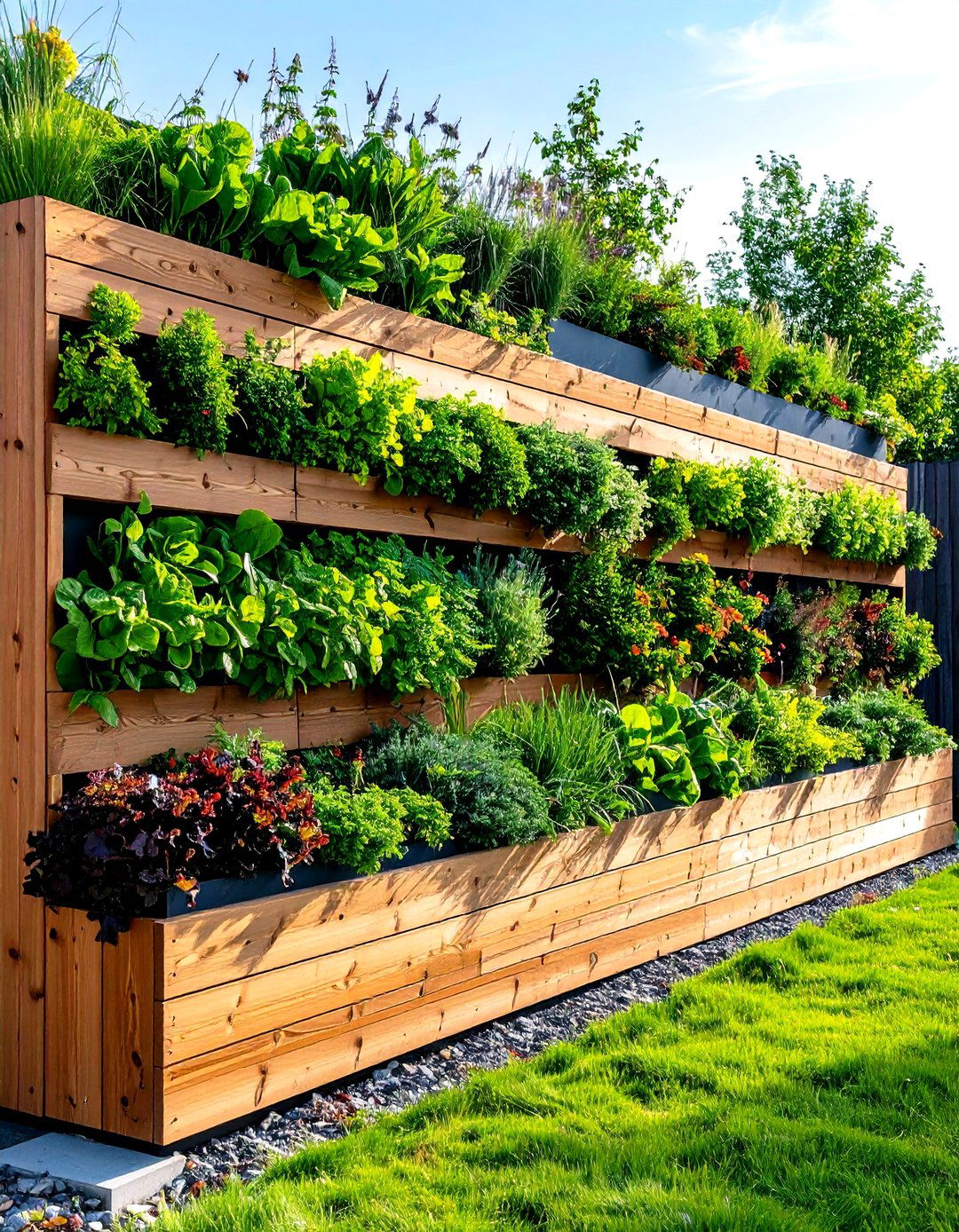
A wood retaining wall with living roof planter system features an extensive planted cap board area that creates habitat and manages stormwater runoff. The wide top surface supports soil and vegetation while providing structural soil retention below. This green infrastructure approach combines landscape function with environmental benefits. Proper waterproofing and drainage prevent structural damage while supporting plant growth. The living roof approach reduces stormwater runoff and provides habitat for beneficial insects and birds. Various plant selections create seasonal interest and color changes. This sustainable design approach suits environmentally conscious projects and green building initiatives. While requiring specialized construction and maintenance knowledge, living roof walls provide exceptional environmental benefits and unique aesthetic character that evolves seasonally.
17. Modular Wood Block Retaining Wall with Interlocking Design

A modular wood block retaining wall uses manufactured interlocking timber blocks that fit together without requiring specialized construction skills. The blocks feature dowel holes and connecting pins that create stable structures through mechanical connection. This system allows DIY installation while ensuring proper structural performance. Various block sizes accommodate different wall heights and design requirements. The interlocking system distributes loads effectively while allowing flexible design configurations. Precise manufacturing ensures consistent fit and professional appearance. This approach suits homeowners seeking professional results with simplified installation. The modular design allows future expansion or reconfiguration as landscape needs change. While initially more expensive than basic lumber, the system provides excellent value through simplified installation and consistent performance suitable for various residential applications.
18. Wood Retaining Wall with Integrated Lighting Design

A wood retaining wall with integrated lighting design incorporates LED strip lights, spotlights, or post cap fixtures to create dramatic nighttime illumination and safety enhancement. Lighting extends the wall's visual impact beyond daylight hours while providing functional pathway illumination. Various lighting approaches include recessed strips, post-mounted fixtures, or decorative accent lights. Proper electrical planning ensures safe installation and convenient control systems. The combination of natural wood textures and artificial lighting creates striking visual effects. Strategic lighting placement highlights wall texture and surrounding plantings. This design approach suits entertaining areas, entry sequences, and safety-critical pathways. Professional electrical installation ensures code compliance and reliable performance. The result transforms utilitarian retaining walls into dramatic architectural features that enhance property security and aesthetic appeal.
19. Composite Wood Retaining Wall with Low Maintenance Benefits
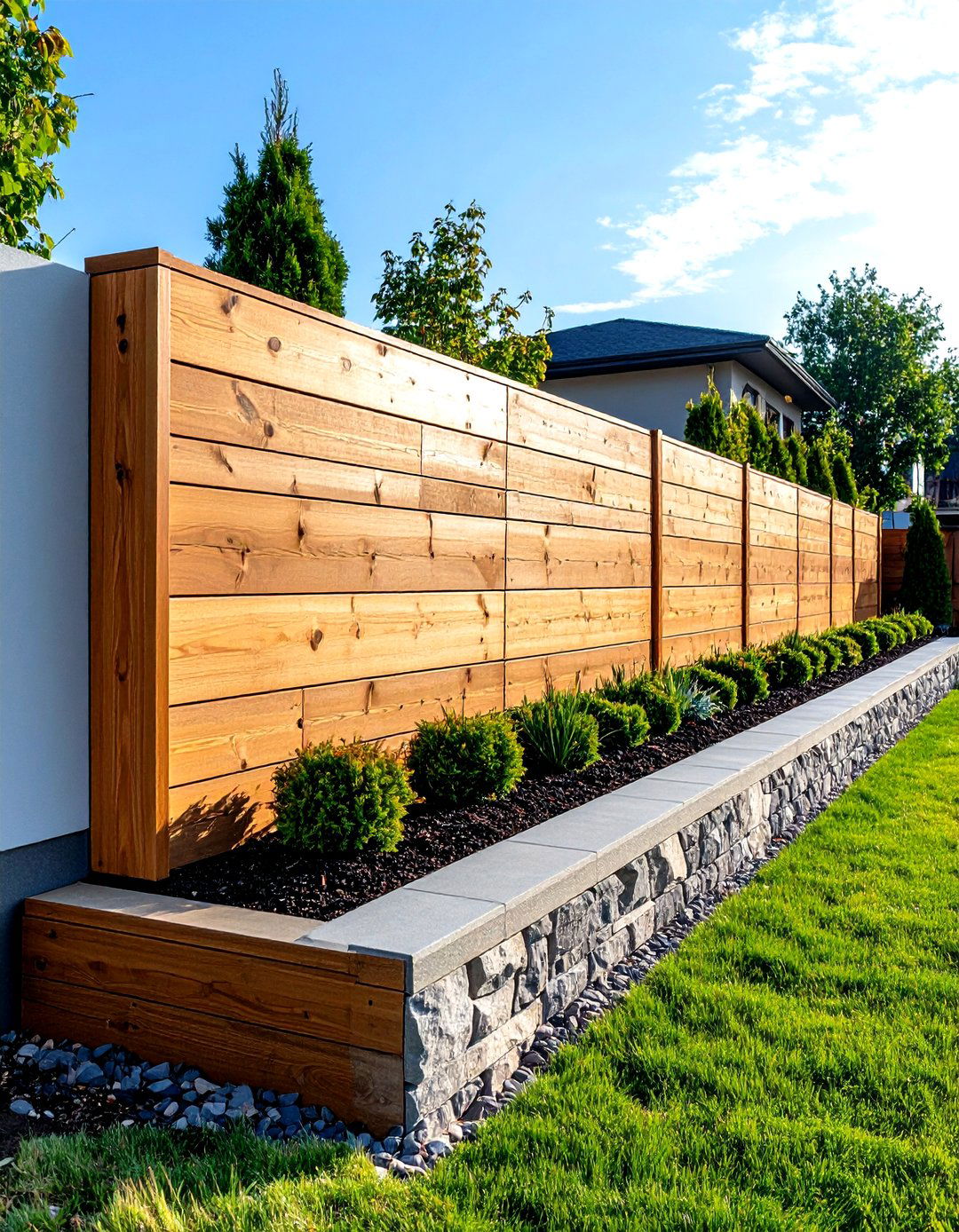
A composite wood retaining wall uses manufactured materials combining wood fibers and polymer binders to create low-maintenance alternatives to natural lumber. These materials resist rot, insects, and weathering while maintaining wood-like appearance and workability. The consistent manufacturing provides uniform color and texture without natural wood variations. Installation follows similar techniques to natural lumber but requires specific fasteners and techniques. The composite materials cost more initially but eliminate ongoing maintenance requirements. Various colors and textures simulate different wood species and finishes. This approach suits properties requiring minimal maintenance and consistent long-term appearance. While lacking the authentic character of natural wood, composite materials provide practical benefits for commercial properties and low-maintenance residential applications seeking wood aesthetics without ongoing care requirements.
20. Wood Retaining Wall with Curved Corner Transitions

A wood retaining wall with curved corner transitions uses flexible construction techniques to create smooth directional changes without sharp angles. The curved corners require careful planning and specialized cutting to achieve smooth transitions. This design approach creates flowing, organic lines that integrate better with natural landscapes. The curves distribute soil pressures more effectively than sharp corners while creating visual interest. Flexible lumber or segmented construction allows various radius curves. This technique suits properties with irregular boundaries or naturalistic design themes. Professional installation ensures proper curve geometry and structural performance. The curved transitions create opportunities for specialized planting designs and architectural features. While requiring additional planning and skilled construction, curved corners transform basic retaining walls into sophisticated landscape elements that enhance property character and integrate seamlessly with natural surroundings.
21. Wood Retaining Wall with Drainage Integration and French Drain
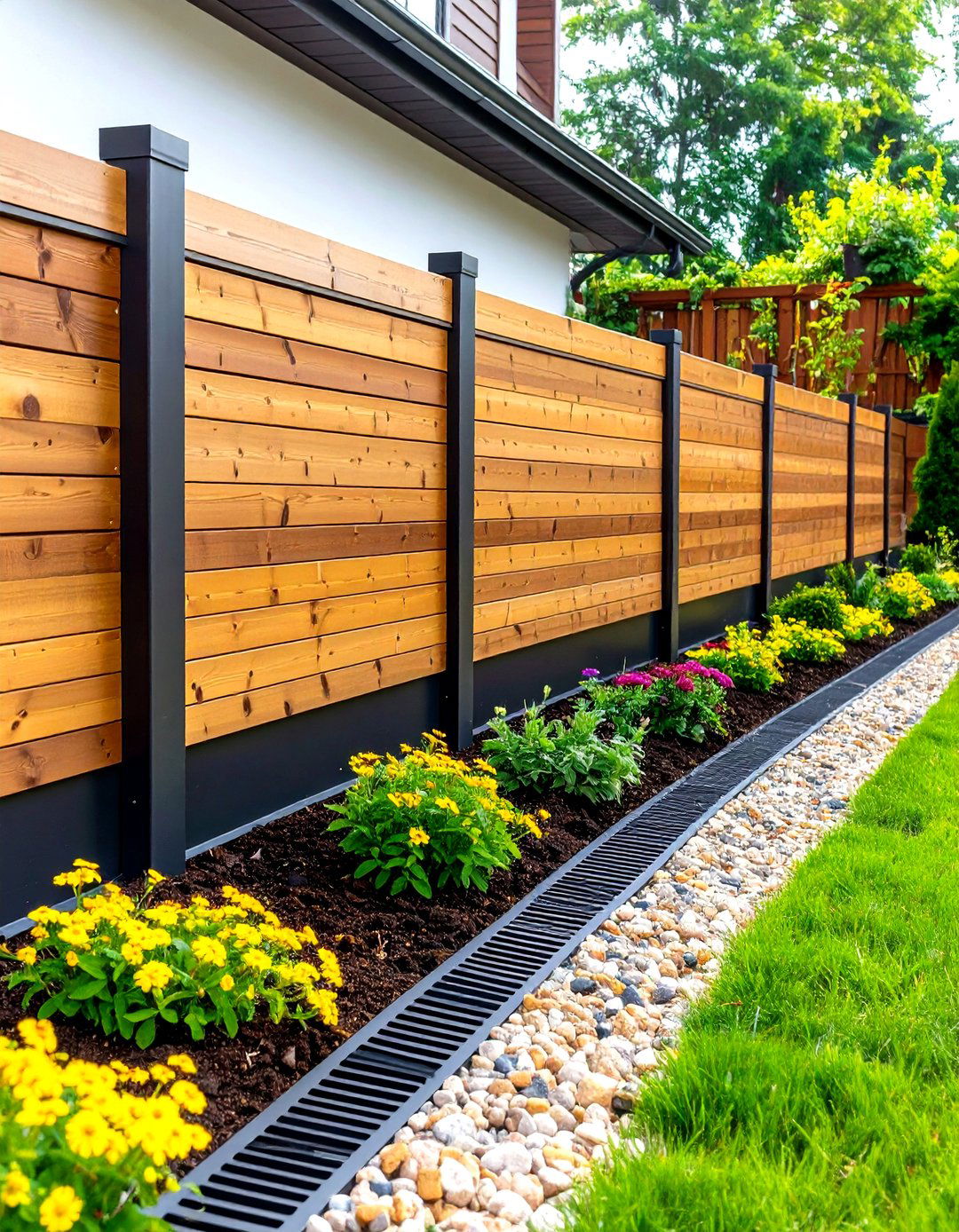
A wood retaining wall with drainage integration incorporates French drain systems behind the structure to manage water pressure and prevent structural failure. The drainage system includes perforated pipes, gravel backfill, and filter fabric to collect and direct water away from the wall. Proper drainage extends wall life significantly while preventing hydrostatic pressure buildup. The integrated approach requires coordination between wall construction and drainage installation. Various drainage designs accommodate different site conditions and water flow patterns. Strategic outlet placement ensures effective water management without creating erosion problems. This engineering approach suits properties with significant water management challenges or high-performance requirements. While adding construction complexity and cost, proper drainage integration provides essential long-term structural performance and prevents costly failure repairs in water-sensitive locations.
22. Wood Retaining Wall with Staggered Height Design
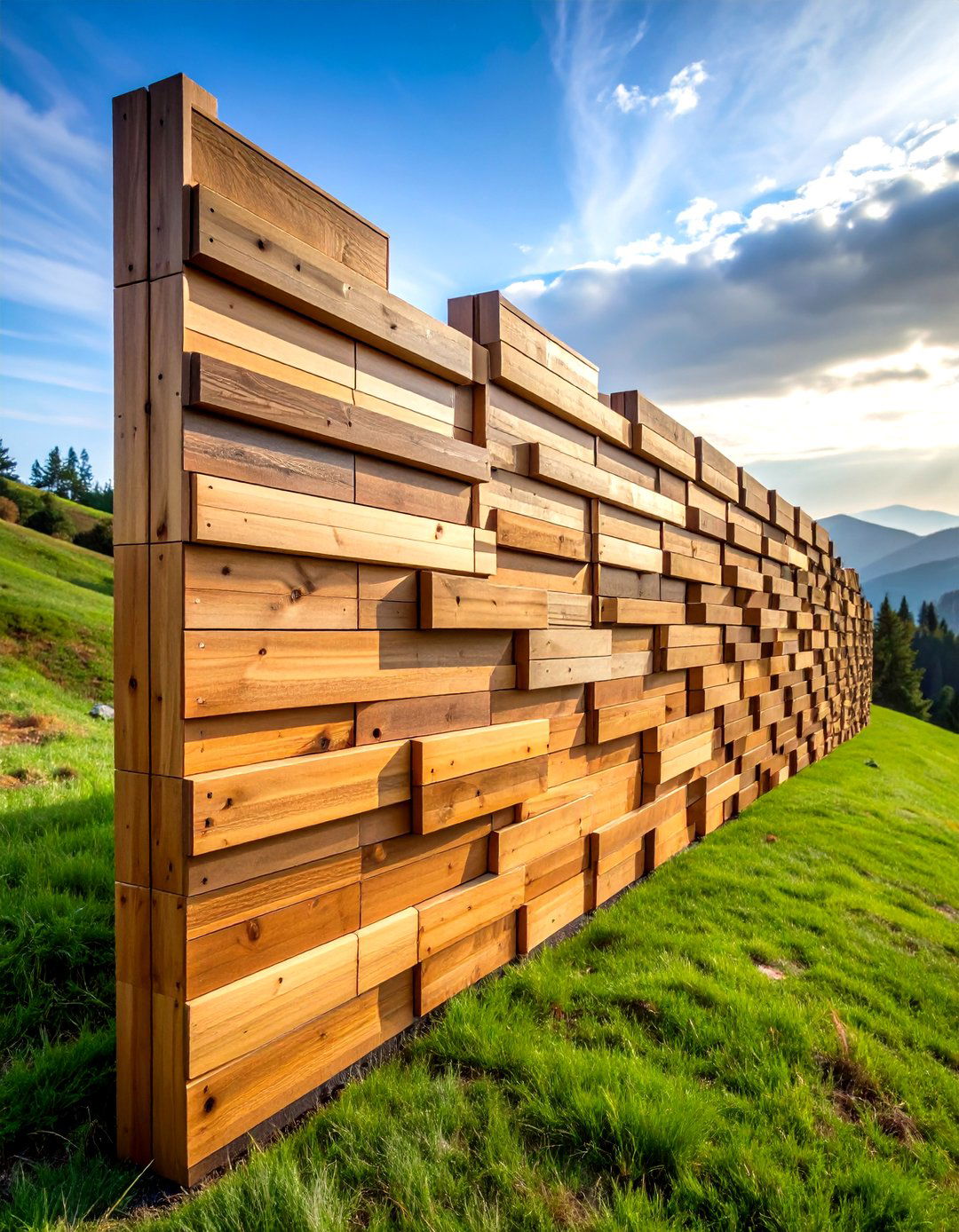
A wood retaining wall with staggered height design varies the wall elevation to create visual interest while accommodating changing site conditions. The varied heights follow natural contours or create intentional design patterns. This approach reduces soil pressure on taller sections while creating opportunities for diverse planting schemes. The staggered design accommodates sloping sites more naturally than uniform wall heights. Various height transitions create interesting shadow patterns and architectural rhythm. The design flexibility accommodates site constraints while creating distinctive landscape features. Strategic height variations provide opportunities for integrated seating, planters, or architectural accents. This approach suits properties with complex topography or design requirements seeking sophisticated landscape solutions that respond to natural site conditions while creating intentional architectural character and visual interest.
23. Wood Retaining Wall with Metal Reinforcement Framework

A wood retaining wall with metal reinforcement framework incorporates steel or aluminum structural elements to enhance load-bearing capacity and durability. The metal framework provides primary structural support while wood cladding provides aesthetic appeal and weather protection. This hybrid approach combines the strength of metal with the natural beauty of wood materials. Various reinforcement strategies include hidden steel posts, metal brackets, or structural frames. The combination allows taller walls and higher load capacities than wood-only construction. Professional engineering ensures proper load distribution and connection details. The reinforced approach suits commercial applications or challenging soil conditions requiring exceptional structural performance. While increasing construction complexity and cost, metal reinforcement provides superior long-term performance and allows ambitious design approaches that exceed typical wood retaining wall limitations while maintaining natural aesthetic character.
24. Wood Retaining Wall with Green Wall Vertical Garden Integration
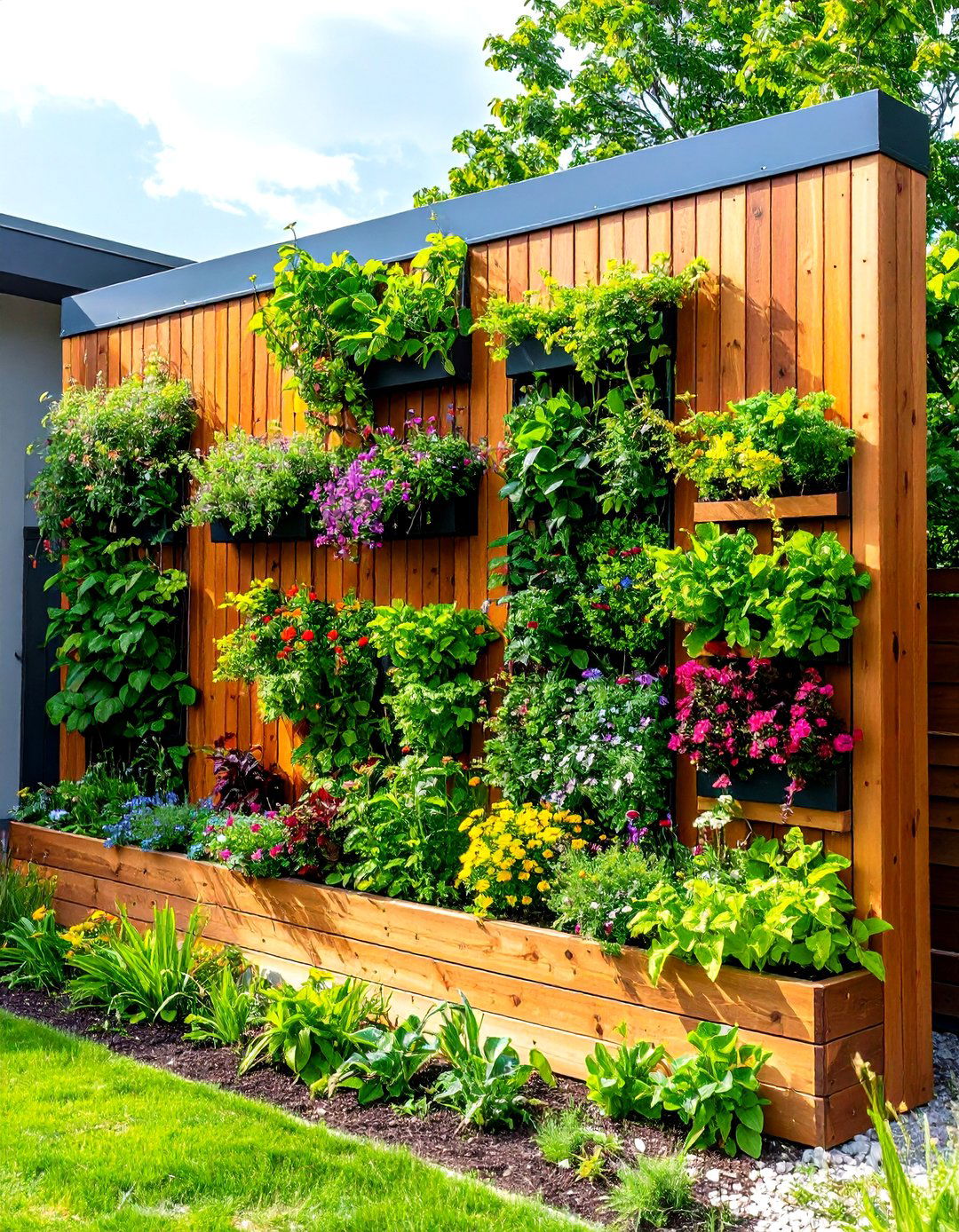
A wood retaining wall with green wall vertical garden integration transforms the structure into a living landscape feature supporting climbing plants and vertical growing systems. The wall design includes attachment points for trellises, plant supports, and irrigation systems. This approach maximizes growing space while providing soil retention functionality. Various climbing plants create seasonal changes and habitat diversity. Integrated irrigation ensures plant establishment and ongoing health. The living wall approach provides environmental benefits including air purification, temperature moderation, and habitat creation. Professional installation includes plant selection, irrigation design, and structural modifications. While requiring ongoing maintenance and plant care, green wall integration transforms utilitarian structures into dynamic landscape features that provide exceptional environmental and aesthetic benefits. This sustainable approach suits environmentally conscious properties seeking maximum landscape functionality and beauty.
Conclusion:
Wood retaining walls offer endless possibilities for combining practical soil management with natural beauty and architectural interest. From rustic railway sleeper installations to sophisticated modern designs with integrated lighting, these versatile structures adapt to various landscapes, budgets, and design preferences. The key to success lies in matching the appropriate wood type, construction method, and design features to your specific site conditions and aesthetic goals. Whether you choose pressure-treated lumber for durability, cedar for natural resistance, or reclaimed materials for character, proper drainage and professional installation ensure long-lasting performance that enhances your outdoor living spaces.



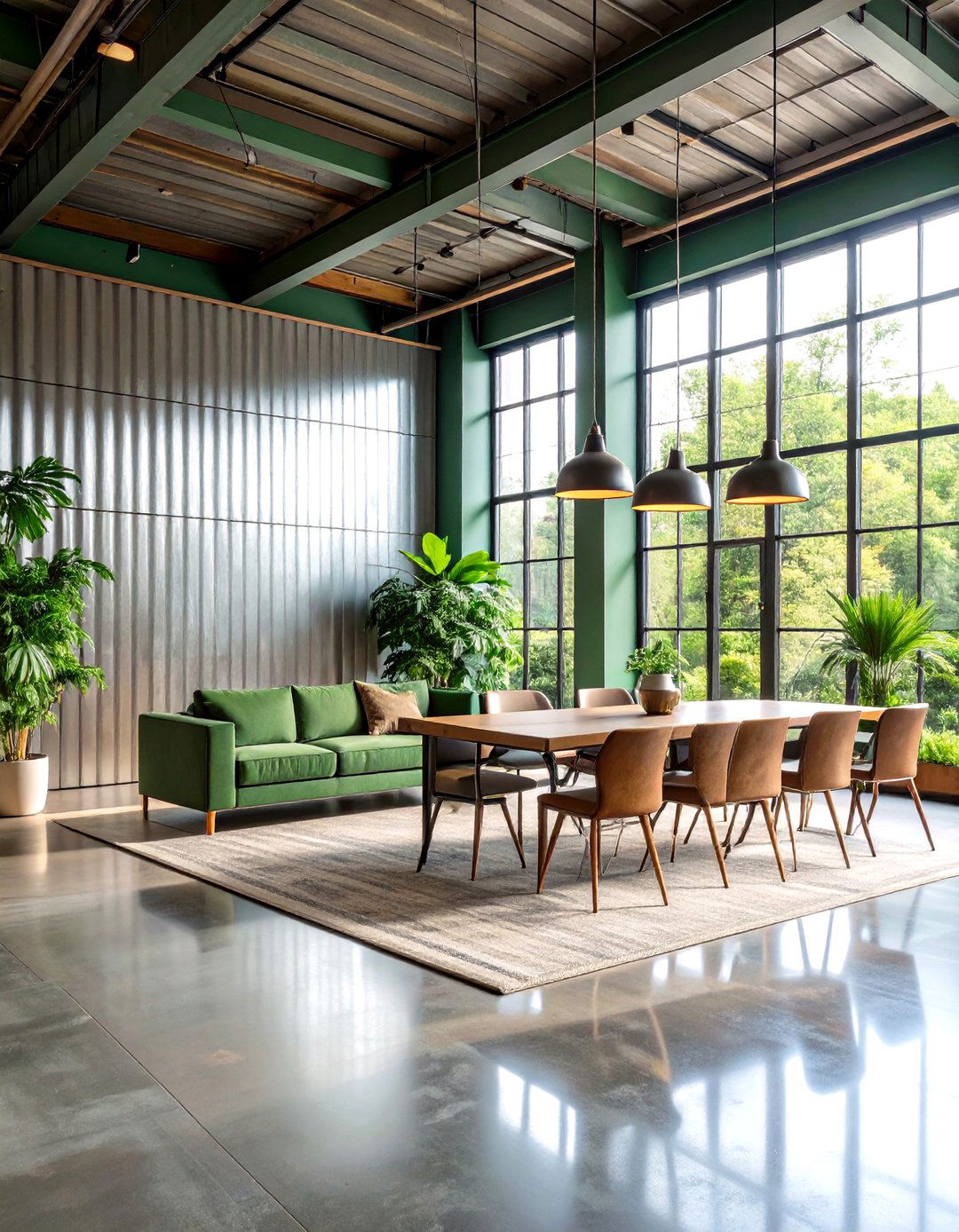
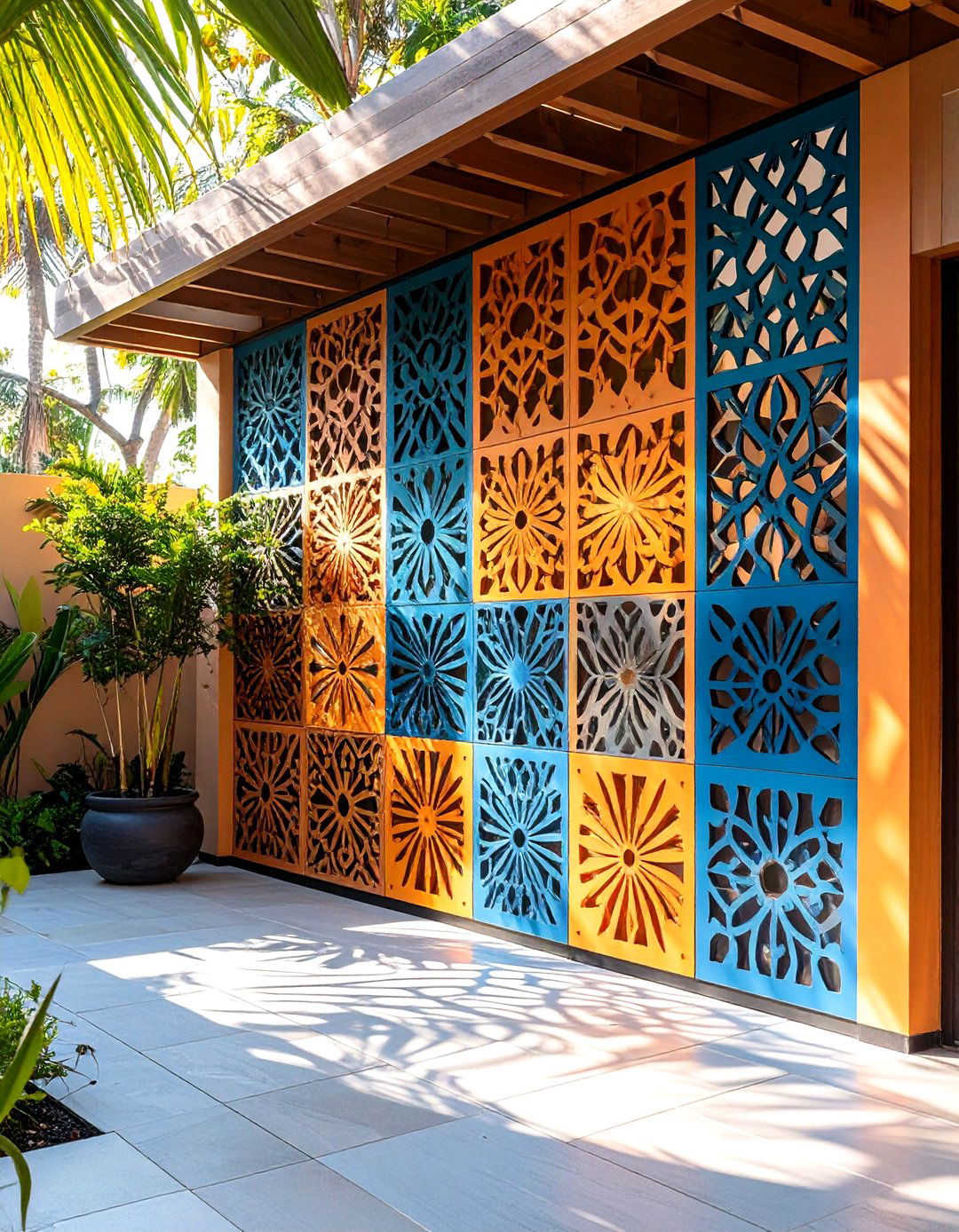
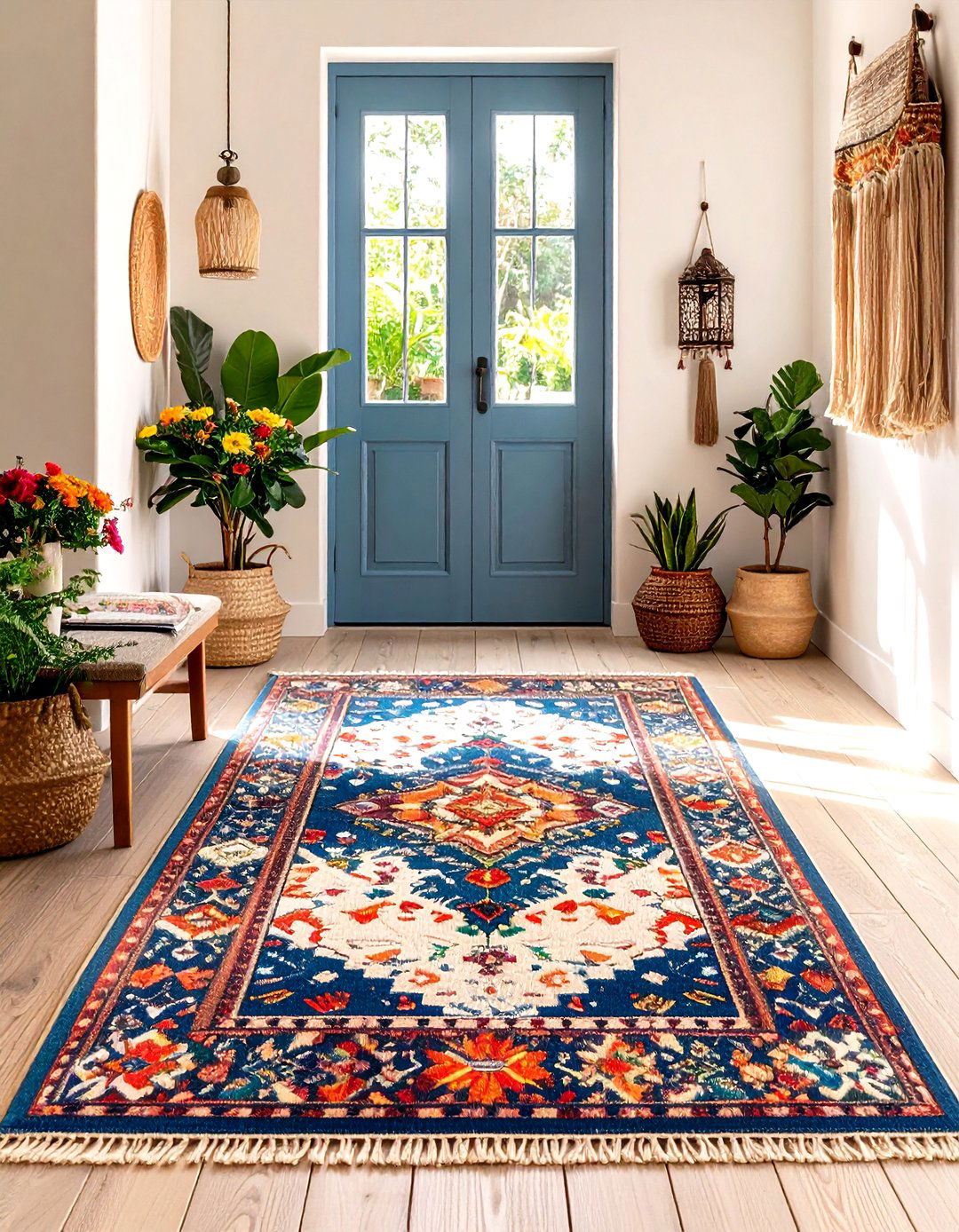
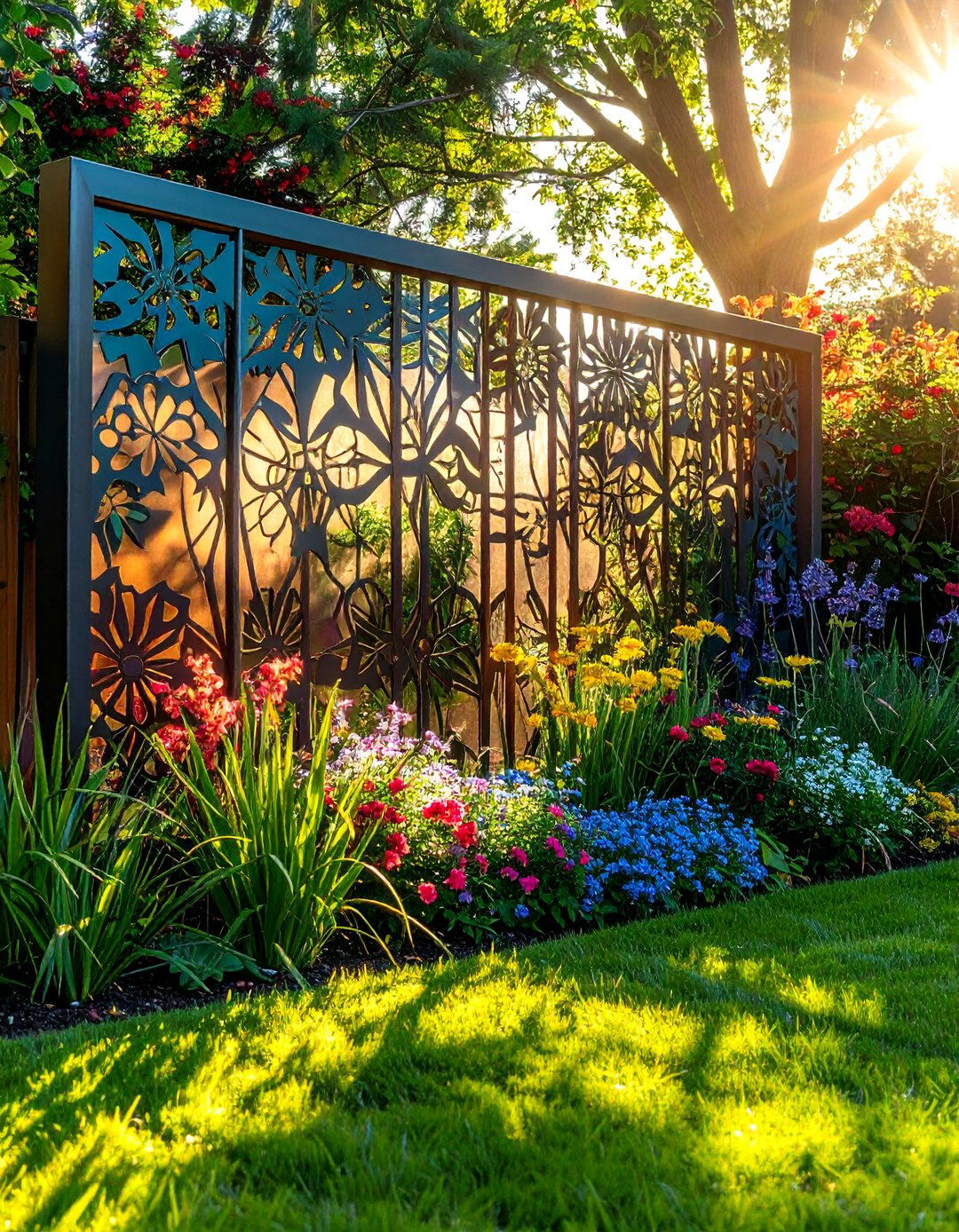

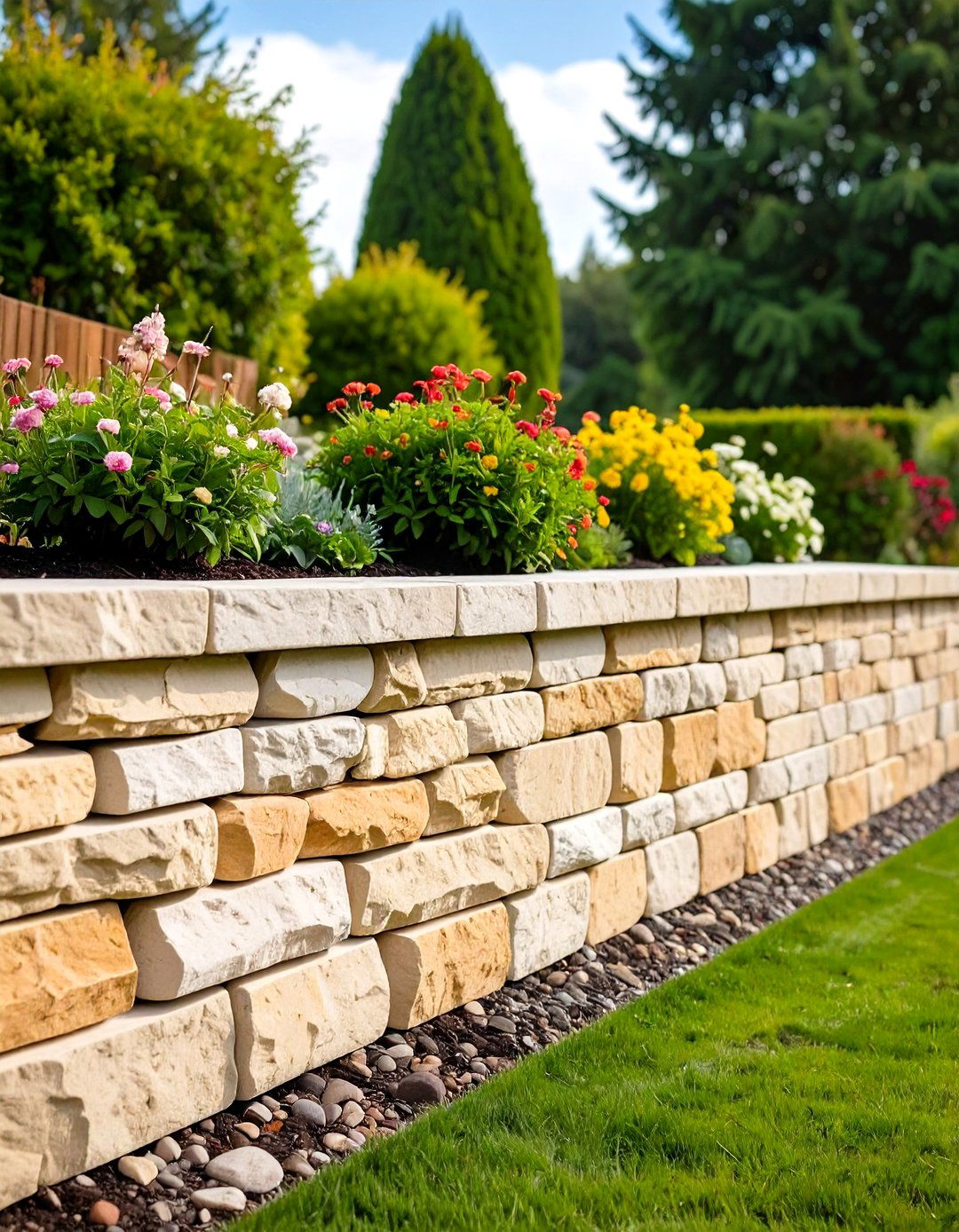



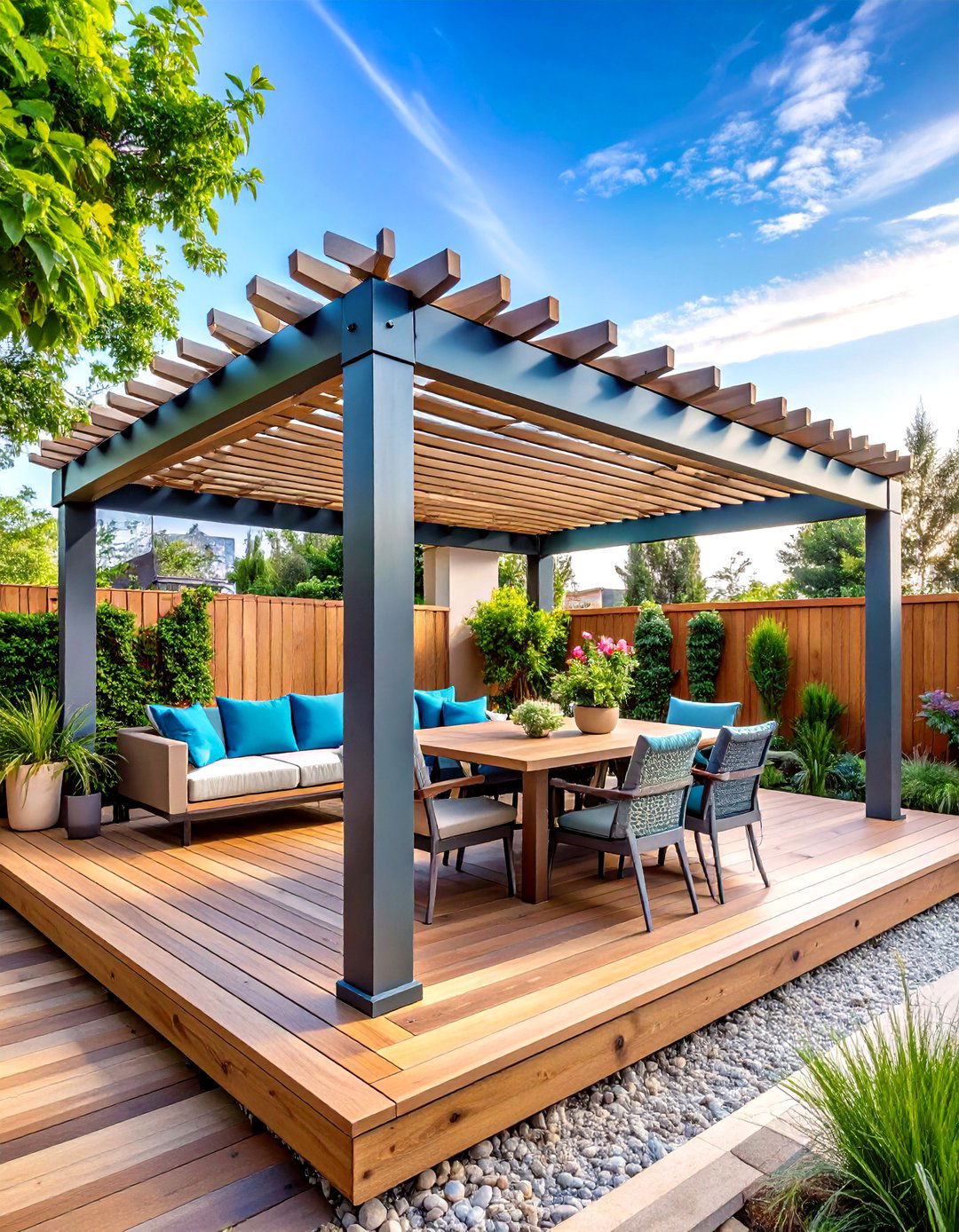
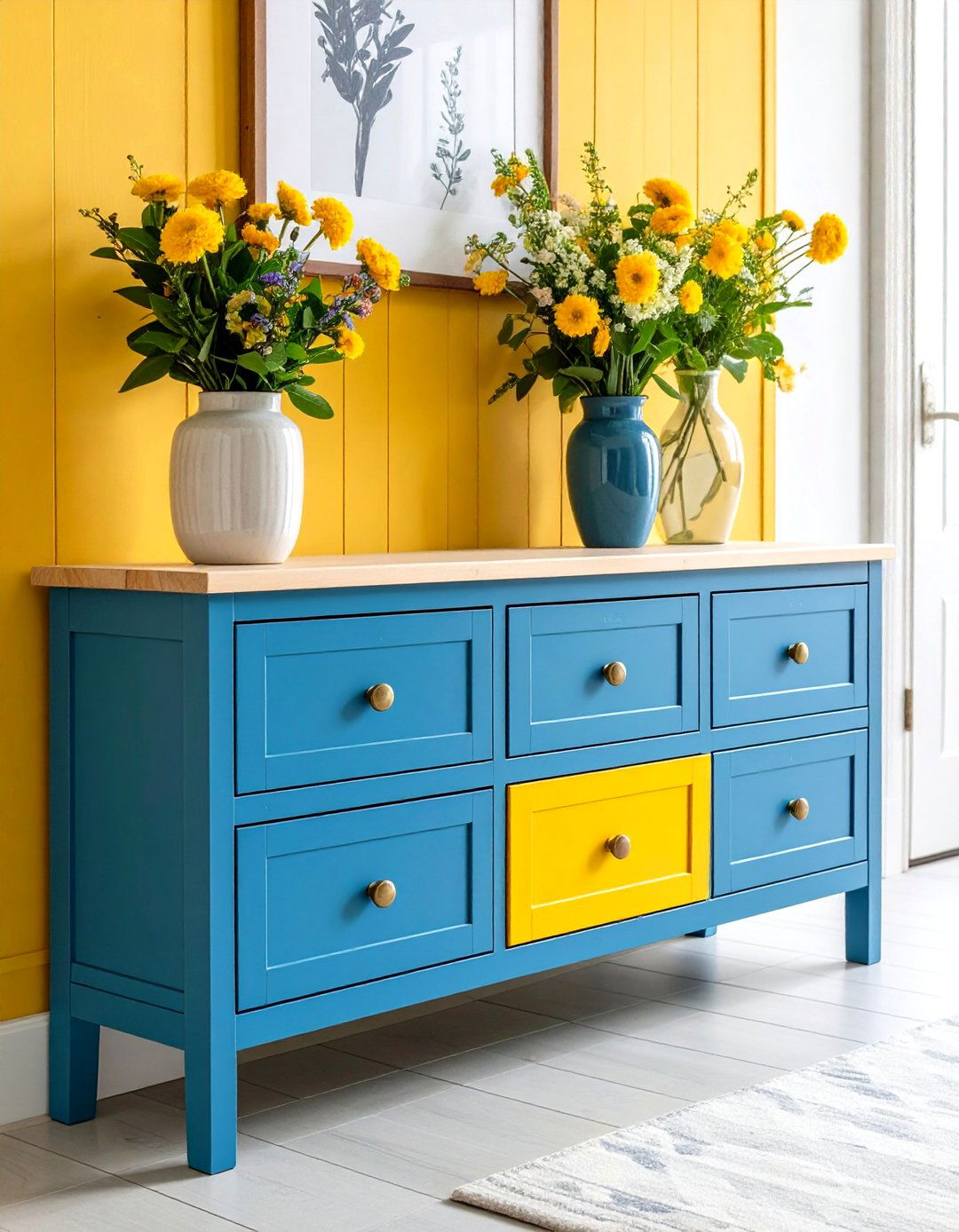
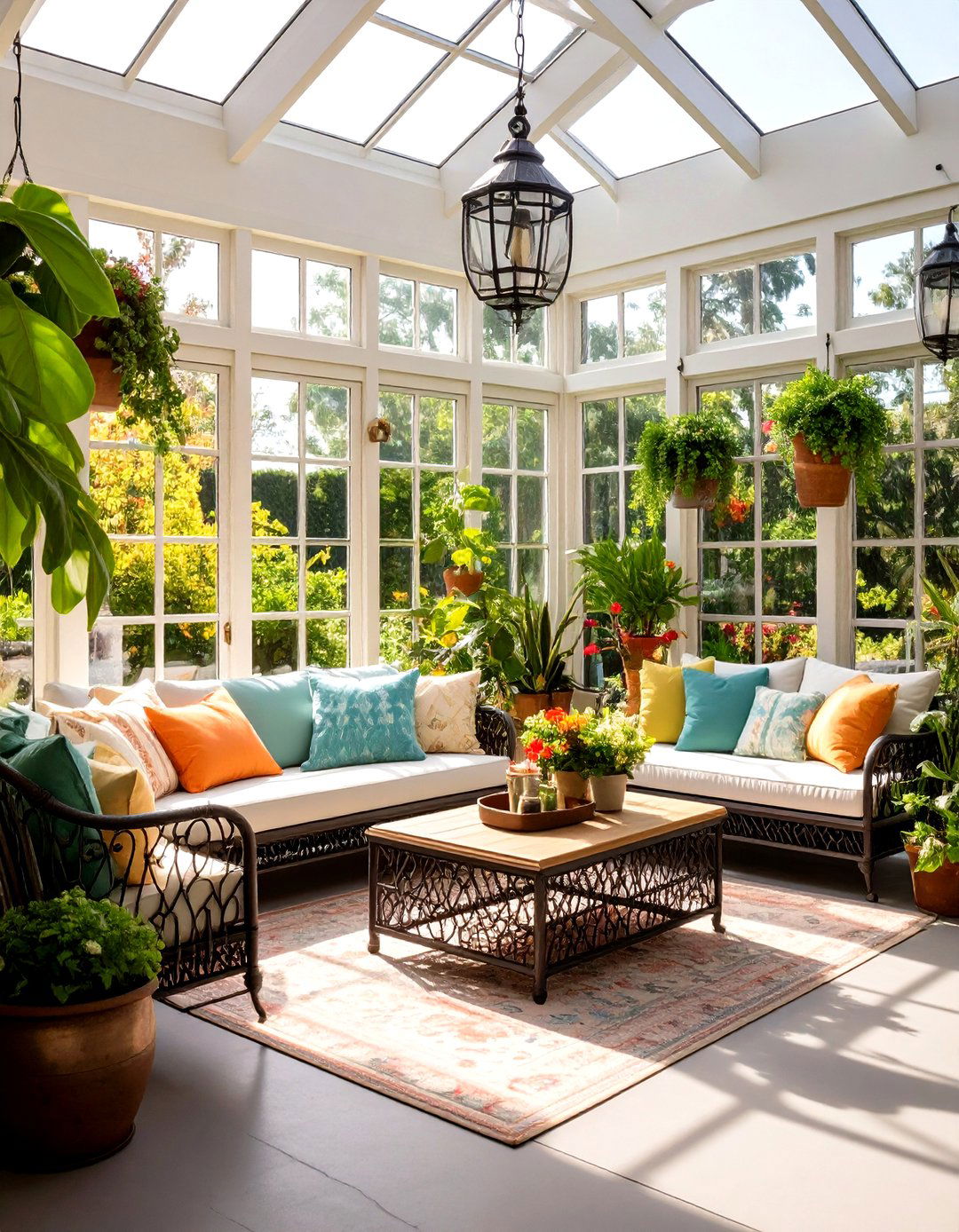

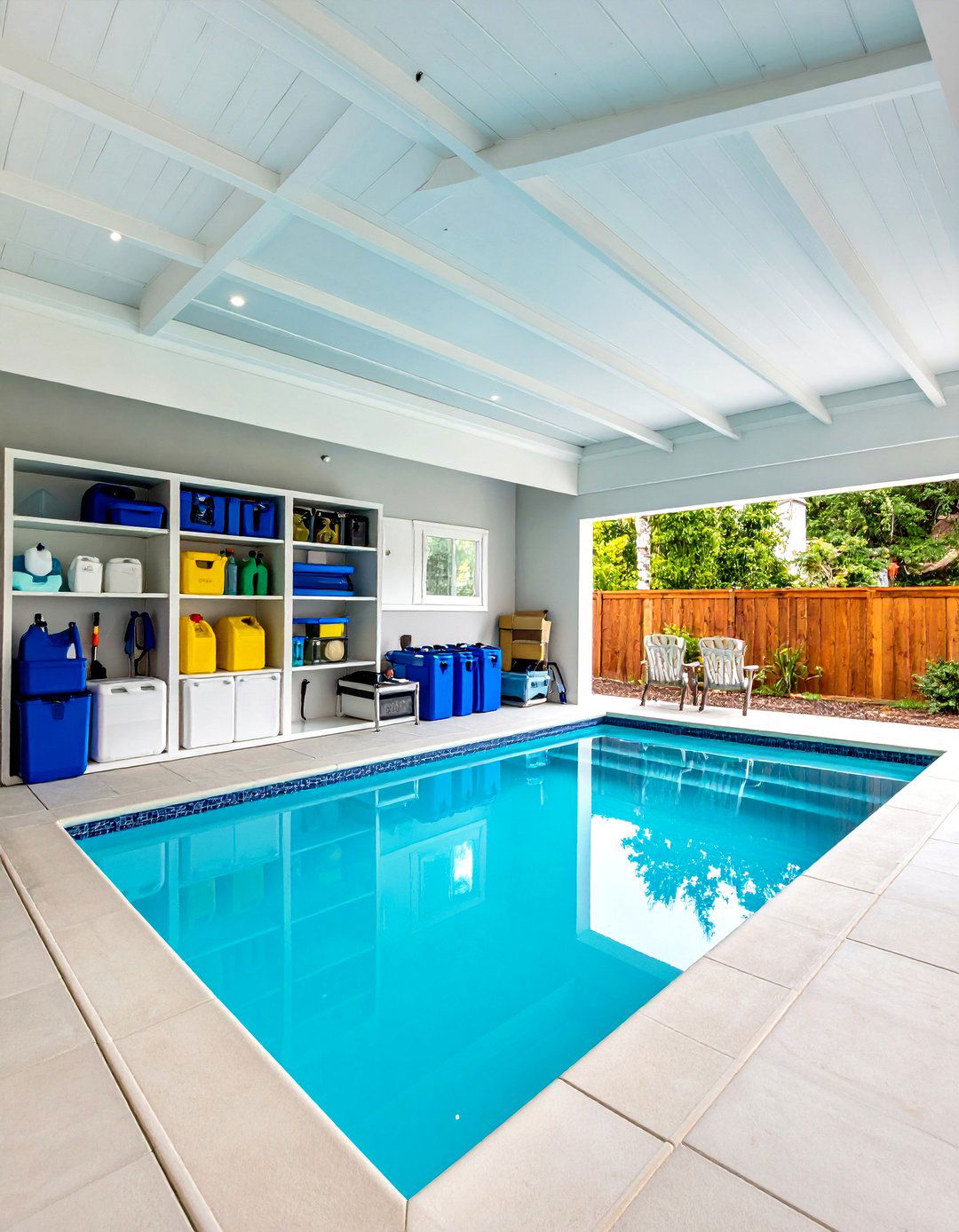
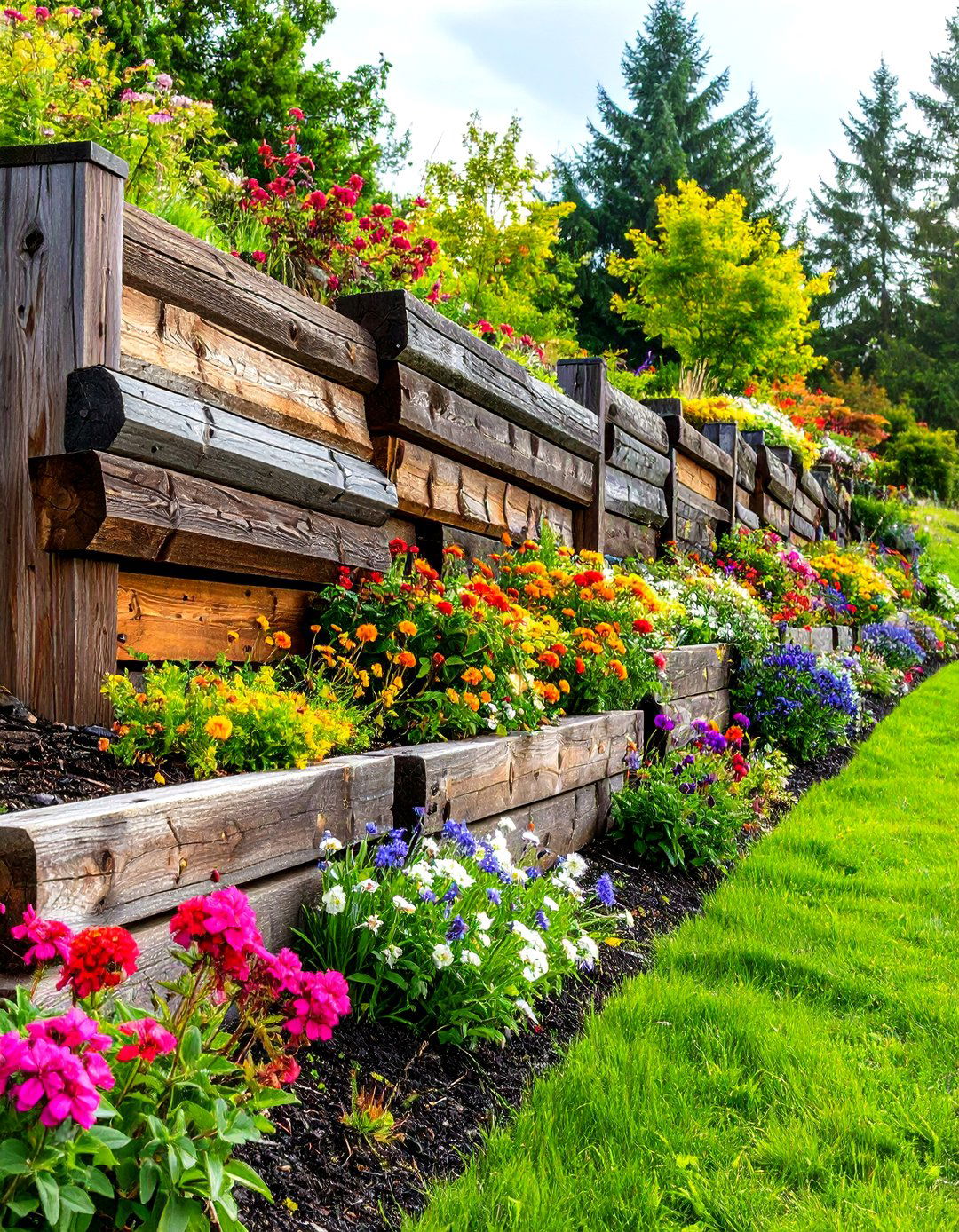



Leave a Reply